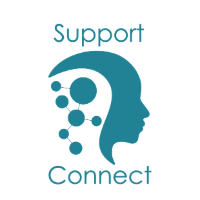A day in the life of a BBC Apprentice
Vicki is an apprentice at the BBC and has autism and dyslexia.
Discover the support options for neurodiverse applicants and apprentices with UCAS
An apprenticeship combines practical work experience with academic learning, allowing you to earn while you learn. For neurodiverse individuals, apprenticeships offer several benefits:
Hands-on learning: Apprenticeships provide direct, practical experience in your chosen field, allowing you to learn by doing. This method can be particularly beneficial for neurodiverse individuals who may thrive in a more interactive and engaging learning environment.
Structured environments: Apprenticeships offer a clear structure with defined tasks and goals, which can help neurodiverse individuals manage their workload and reduce anxiety. The predictable routine and consistent support from mentors and colleagues can create a more comfortable and effective learning experience.
Opportunities to develop skills in a real-world setting: Apprenticeships enable you to apply your knowledge in real-life situations, enhancing your problem-solving abilities and practical skills. This real-world experience can be invaluable in building confidence and competence in your chosen career path.
Vicki is an apprentice at the BBC and has autism and dyslexia.
If you suspect you might be neurodiverse, consider exploring the following options:

“Support Connect exists to connect learners with additional learning needs to the support and advice they need in order to progress and succeed. We also work with training and education providers and employers to make sure that they are able to deliver specialist support and adjustments themselves.”

Whether you have a specific learning or mental health need that has already been diagnosed or you’re not sure why you’re struggling, we can help identify your challenges and find ways of working that work for you. The label of disabled is now celebrated as differently abled, and rightly so. Neurotypical and neurodiverse differences are widely recognised as the much-needed fuel for productivity, creativity and innovation. And because of this long-awaited recognition, no one needs to feel embarrassed to be different or raise their hand for help. Support Connect will connect you to the support you need to enable you to enjoy your apprenticeship and not struggle through it.
Reasonable adjustments are changes to the work environment that enable you to perform your job effectively. Examples include specialist learning support, assistive technology, extra time for tasks, and small group environments. This reasonable adjustments guide from Disability Rights UK lists some of the adjustments that could be put in place.
Requesting adjustments can see like a daunting task, so make sure you follow the correct procedure with your employer or your training provider, this might look like:
Connecting with others who share similar experiences can be invaluable, and these networks can come in all shapes and sizes.
As an apprentice, you are not eligible for Disabled Students’ Allowance (DSA) or student finance, but there are several funding options that you may be eligible for.
Funding Options:
ESFA learning support funding (up to £19,000 per learner per year): The UK’s Education and Skills Funding Agency (ESFA) will pay training providers up to £19,000 per learner per year to make reasonable adjustments to support apprentices who have learning difficulties or disabilities. Learning support is payable to training providers and is separate to any funding available to employers. Training providers and employers should liaise to ensure that the apprentice is fully supported. Employers may also be able to access alternative sources of support. Learning support may be used to support people undertaking all levels of an apprenticeship, including a higher or degree apprenticeship course as these students are excluded from claiming Disabled Student Allowance.
Access to Work scheme: As an apprentice, you won't be eligible for Disabled Students’ Allowance (DSA) or student finance, but you are eligible for funding through the Access to Work scheme. This is a grant that can help you pay for work-related things that don’t fall under reasonable adjustments such as practical support with your work, support with managing your mental health at work and assistance with communication support at job interviews. The support you get will depend on your needs.
Grants for specific needs (e.g. taxi fares): If you are eligible to apply for the Access to Work scheme you can also apply for assistance to work if you cannot use public transport such as taxi fares for example. You need to apply for it directly unless your apprenticeship is with the Civil Service.
How to Apply for Financial Support:
Identify your needs and the relevant funding sources.
Liaise with your training provider and employer.
Complete the necessary applications and provide documentation.
Managing assessments and assignments can be challenging, especially for neurodiverse individuals. However, with the right strategies, resources, and support, you can navigate both your coursework and your role responsibilities successfully.
There are many strategies and resources for support you will find from your training provider and employer, including:

If you face issues or discrimination in the workplace, it's important to know your rights. Knowing the steps to take and the support available can help you manage and resolve workplace challenges effectively.
Steps to Raise a Complaint:
Support Services:
Still not getting the support you need?
If you’re still not satisfied with the outcome of your complaint, you might want to contact an independent body for further advice. You may want to look at:
